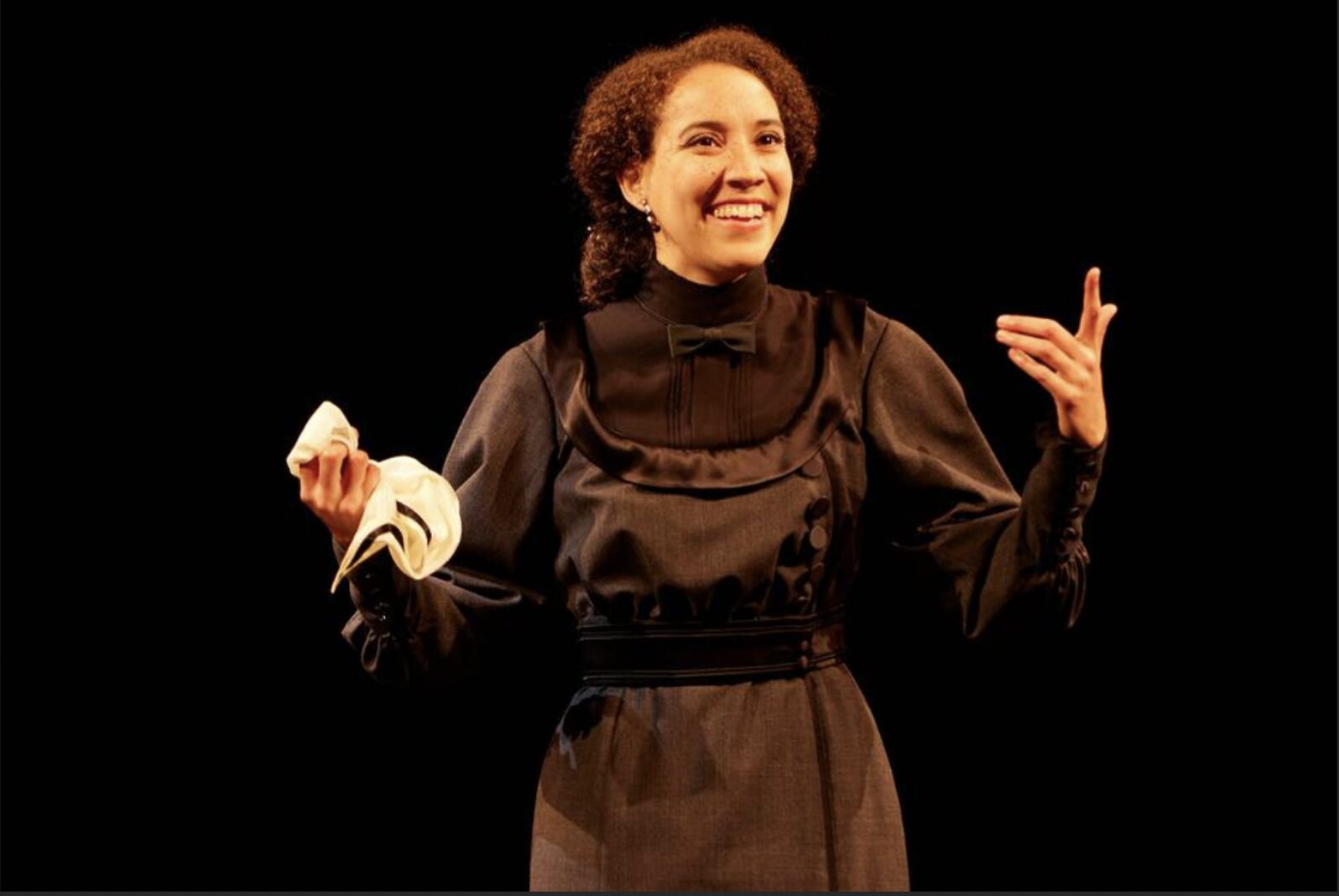
The Friends of the McGill Library and Stratford Festival present the 2024 annual Shakespeare Lecture featuring actor, playwright, teacher, and McGill graduate, Jessica B. Hill in conversation with Professor Paul Yachnin, Tomlinson Professor of Shakespeare Studies.
Their discussion on January 25, at 6 p.m. will address her preparations to play Viola in Stratford’s 2024 production of Twelfth Night, as well as her recent play, The Dark Lady, a love duet which spans the breadth of Shakespeare’s canon and reclaims Emilia Bassano’s story (the possible dark-skinned lady of the sonnets). Both a love letter to Shakespeare and a challenge to our conventional view of ‘the Bard,’ the play is to be published this spring.
This event is hybrid. Get more details and RSVP (required) online. In advance of the event, the McGill Reporter spoke with Hill.
Is there anything about Shakespeare that you think people should know before they read or see his work for the first time?
I think people should allay themselves of any preconceptions or notions of grandeur when approaching Shakespeare for the first time. Familiarize yourself with the plot and characters so you can follow the story, and don’t worry if you don’t understand everything right away, it gets easier as you go. Remember, it’s just people speaking to each other. They happen to be speaking in complex language because they’re having complex thoughts; his plays are poetry in action. If you’re reading, experiment with reading aloud, or whispering to yourself. So much information about his character’s state of heart and mind is baked into the rhythm of the verse and the sound of the language. Discovering a love of Shakespeare is also discovering a love of words. Explore what this language sounds and tastes like and you’ll already be understanding more than you think.
Has the writing of your play, The Dark Lady, changed the way you perform and/or teach Shakespeare?
I’m certain it has. Writing Shakespeare as a character I could relate to brought ‘The Bard’ closer to home. He simply became Will. I had many conversations with Will as I wrote. I got to question, confront, tease, rage at, and thank him for his life’s work. It offered me such an intimate, human window into him, and helped me conjure up his mind and possible inspiration. The Dark Lady also allowed me to recenter Shakespeare in a multicultural context, which has been a fascinating experience. It’s unveiled an exciting new layer of meaning to his work, and allowed me a personal point of connection. As an actor, I think it has quickened and personalized my access to his work. When I teach, I champion my students to do the same. I encourage them to access his plays from their most authentic selves.
Can you name a Stratford moment, be it a performance, rehearsal, or behind-the-scenes, that has profoundly affected you?
I most recently played Helen in All’s Well That Ends Well, one of Shakespeare’s lesser known and thornier plays. It contains some of his densest, most complicated verse. Both powerfully poetic yet unabashedly complex, it can be a difficult play to understand. A year after we had closed, I was back in Montreal and a student of mine approached me to speak of how moved she had been by the character and the story. Her eyes watered and we ended up in a big teary hug. Then, she asked if our production had modernized the script. It was her first time seeing Shakespeare performed and she couldn’t believe how easy it was to understand.
…Our production hadn’t changed a word. I was over the moon.
For students aspiring to pursue a career in acting or the performing arts, what advice would you offer based on your own experiences? Are there specific skills or mindset shifts that you found crucial in your journey from Dawson College, McGill, and other training opportunities to a successful acting career?
What’s wonderful about acting is that it mirrors your life. The work evolves with you as you grow. When I was younger, I think I was looking for some kind of end goal or plateau, but the wonderful realization that came with experience was that the work never stops – we’re always discovering, refining, exploring, deepening.
Young artists often start out thinking they’re on their own, but theatre isn’t a solo journey. Our artform is social, it’s about gathering together to create something larger than the sum of its parts. Rehearsal halls are communal, world-building spaces that foster connection and curiosity. Bring your empathy, kindness and sense of adventure to rehearsal. Look to artists you admire, ask them questions, learn from them. And most important: don’t wait for the phone to ring, go out and make art. Put on the plays you’ve always wanted to do whatever way you can. Write the plays you wish already existed. Never stop finding ways to tell stories and create. We are made to make.

Having sat through multiple performances of All’s Well at the Stratford Festival in 2023, Jessica’s portrayal as the delightful, quick-witted and determined Helen was awesome! Her own personality and confidence made the language of Shakespeare so understandable and Helen became so lively and real. (Can you tell I’m a fan of Jessica B. Hill? First time I saw her acting I knew Jessica had greatness).